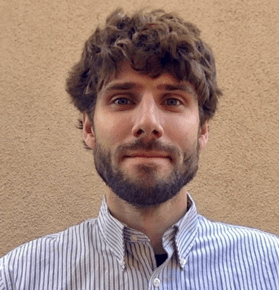
Associate Professor
Department of Earth and Planetary Sciences
University of New Mexico
| 2018 - Present | Associate Professor, Department of Earth and Planetary Science | University of New Mexico |
| 2013 - 2018 | Assistant Professor, Department of Earth and Planetary Science | University of New Mexico |
| 2011 - 2012 | Postdoctoral Scholar, Division of Geological and Planetary Science | California Institute of Technology |
| 2011 | Ph.D., (Geological Science) | University of Oregon |
| 2006 | BA, (Environmental Studies) | Warren Wilson College |
| 2020 - Present | IRIS Board of Directors, Member | |
| 2019 | IIRIS Input to CORES Writing Committee | |
| 2017 - 2019 | PASSCAL Standing Committee | |
| 2016 - 2018 | PH5 Working Group | |
| 2014, 2018 | IRIS Intern Orientation Lecturer | |
| 2013 - 2016 | EarthScope Steering Committee | |
| 2015 | Writing Committee, Future Geophysical Facilities Required to Address Grand Challenges in the Earth Sciences | |
| 2015 | IRIS Intern Mentor | |
| 2014 | IRIS Workshop Program Committee | |
| 2014 | IRIS/Geophysical Society of Houston Joint Workshop Organizing Committee (2014) | |
| 2013 - 2014 | Amphibious Array Steering Committee | |
| 2012 - 2014 | TA Working Group |
| 2018 - Present | Associate Editor, Seismological Research Letters | |
| 2106 - 2018 | GeoPRISMS Distinguished Lecturer | |
| Reviewer and/or Panelist for NSF Geophysics, EarthScope, Tectonics, Marine Geology and Geophysics, Integrated Earth Systems, CAREER, GeoPRISMS, CSEDI, Geoinformatics, Antarctic Research |
My work as a researcher and educator greatly benefits from the infrastructure and culture of the IRIS community. I engage in observational seismology using archived data from long-term observatories, temporary community-driven projects such as the Transportable Array, and new portable array data collected by collaborators and the research group that I lead. These experiences give me an applied perspective on multiple modes of operation for modern seismologists, including what capabilities currently help us thrive and what barriers we should try to mitigate to set the stage for future advances. As a student, postdoc, and faculty member I have experienced IRIS as a world-class community-governed organization that is collegial, ambitious, and responsive to feedback. Planning for the upcoming merger of IRIS and UNAVCO is an opportunity to build upon the best attributes of both communities and bolster the mechanisms that will allow us to successfully adapt to future community needs. I would be honored to help with the work involved in this important transition.